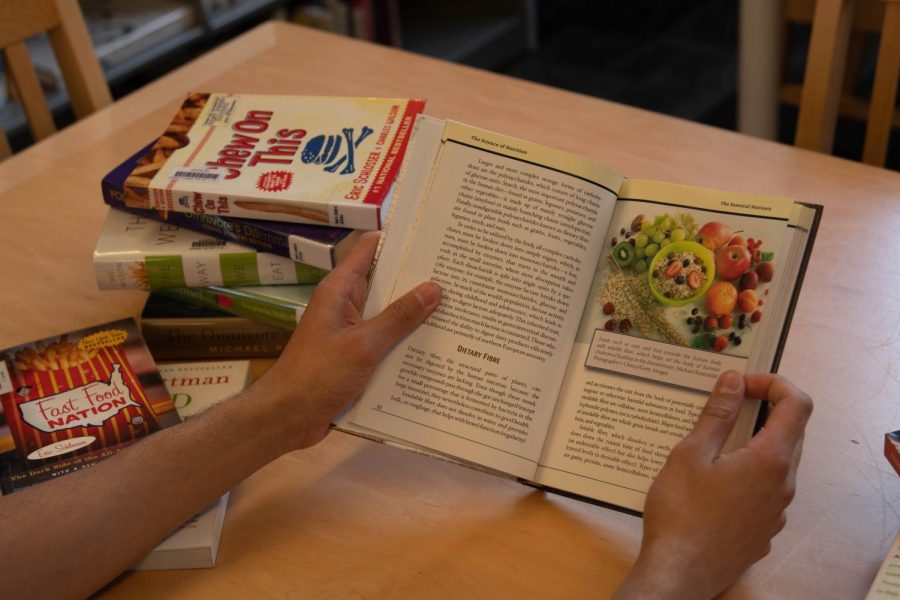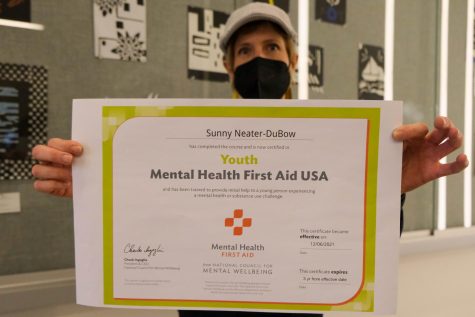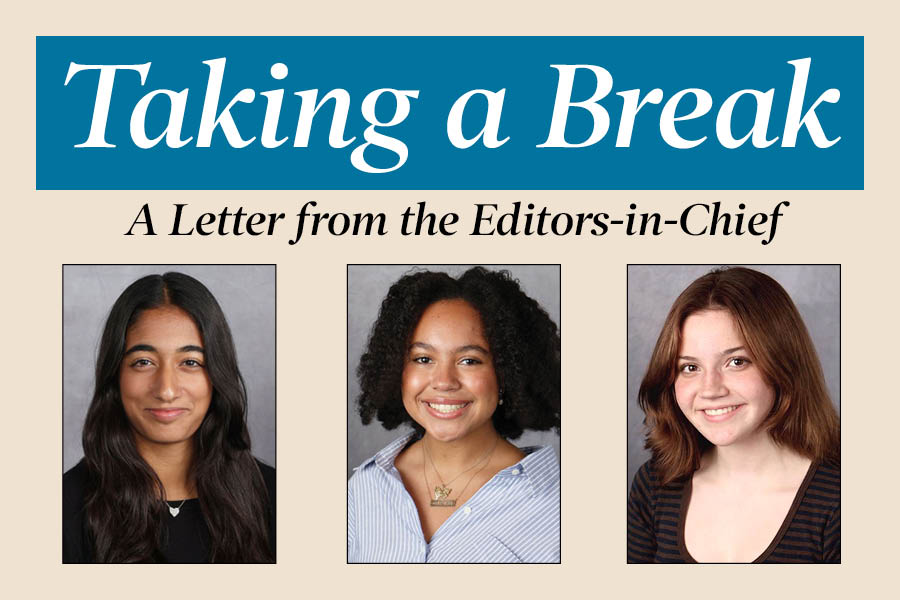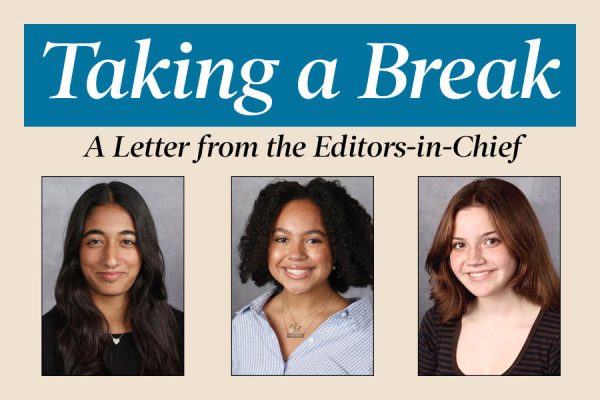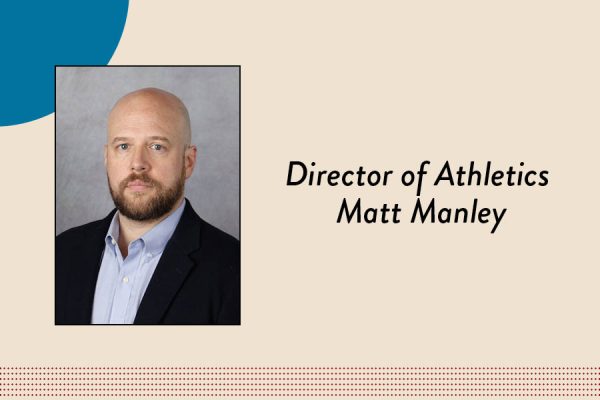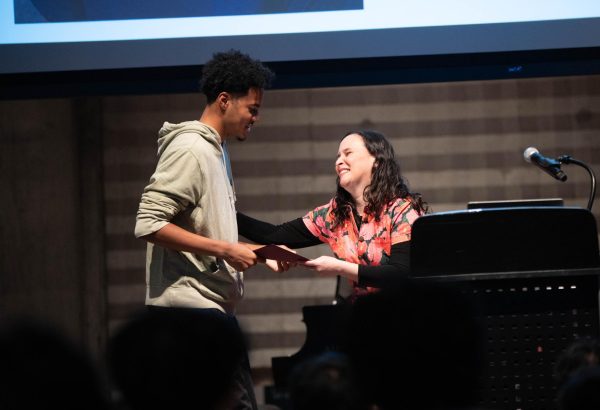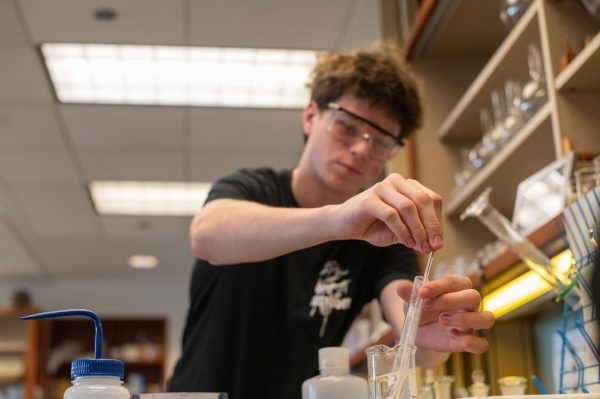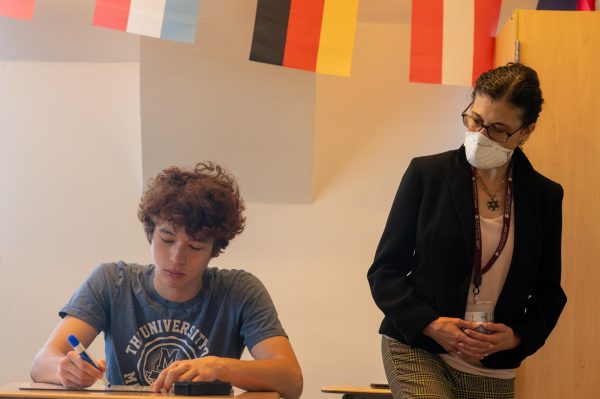Students push for health curriculum reforms
Some students believe that Lab’s health curriculum is outdated, and needs modification to effectively teach modern health principals.
May 16, 2022
Fluorescent lights beam down on sullen students in a health class. A few students stare intently at the white board while others zone out, content to listen to whatever music is pumping through their headphones. In contrast to their classmates’ indifference, some of the students are appalled by the way the topic is being covered. Calorie counting has become a controversial topic, and in this class it is being portrayed in a positive light.
Calorie counting isn’t the only diet-related topic covered in health class that some students believe is taught in an antiquated way. Because of this, and the rising number of eating disorders that affect high school students throughout the nation, these students, some of whom attend Lab, want to see changes in the health curriculum revolving around diet and nutrition.
“This idea of ‘a calorie in and a calorie out’ when it comes to weight loss is not only antiquated, it’s just wrong,” said Dr. Fatima Cody Stanford, an assistant professor of medicine and pediatrics at Harvard Medical School in an interview published in Harvard Health Publishing.
In addition to calorie counting, students in a sophomore health class were told to measure their body mass index (BMI), an activity which many of them, including sophomore Areen Khan, declined to do.
Areen said, “We also went into BMIs and how that’s another accurate way of measurement, even though it’s completely based off of white Americans, which many of us at the school are not.”
According to researchers at the Perelman School of Medicine at the University of Pennsylvania, BMI is an inaccurate measure of body fat content in large part because it doesn’t take into account the racial and sex differences that Areen described.
Mahi Shah, another sophomore who participated in health this year, has participated in an independent study in which she works with the P.E. and learning and counseling departments to address the gaps in the curriculum.
“I’m excited for it,” Mahi said, “because I think it’ll be good for the coming years to get a new idea in terms of, you know, intuitive eating and moderation, as opposed to things that maybe are more dated.”
Mahi has already been meeting with teachers to discuss their current curriculum and is drafting supplemental materials to recommend that teachers add to their curriculum.
If current trends continue, it is predicted that by 2025 there will be 20% or more obese children and adolescents in over 30 nations throughout the world. Historically, health and P.E. classes have been said to improve obesity in young children.
P.E. teacher Luke Zavala thinks that it is important to not avoid addressing nutrition, but to instead focus the curriculum on teaching nutrition with an awareness of eating disorders.
“Obviously, that can be a pretty sensitive topic, especially as you know, people are in high school, there’s a lot of pressure to look a certain way whether that is you want to look buff or you want to look skinny,” Mr. Zavala said. “There’s a lot of pressure to fit into some type of category that society tells you need to fit in.”
Mr. Zavala added that as high school students gain more freedom, it is important that they gain more knowledge of the benefits of certain types of food, beyond the caloric content.
He said, “As people start getting older, getting ready to leave for college, even starting to really drive cars, you’re able to go and do things on your own or with friends without supervision. Food obviously plays a part in that.”
Diet is individual to each person, and Mr. Zavala hopes that health class can offer students the information to develop a healthy diet that is unique to them.
But for now, the students remain under the stark lights, the health curriculum — and their resolve to modify it — unchanged.



